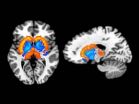(Press-News.org) Palaeontologists have developed methods to try to identify and correct for bias and incompleteness in the fossil record. A new study, published on 4 September 2014 in the journal Nature Communications, suggests that some of these correction methods may actually be misleading. The work is led by Dr Alex Dunhill (University of Leeds, formerly at the Universities of Bath and Bristol), together with Hannisdal (University of Bergen) and Professor Michael Benton (University of Bristol).
Back to the origin of animals
"The Earth keeps changing. Life keeps evolving. And there is a link between the two, where both can influence one another," says Hannisdal. "These types of issues are central to my research in general and also underpin this particular study."
The trio have compared biodiversity through the last 550 million years of the British fossil record against a number of geological and environmental factors including the area of sedimentary rock, the number of recorded fossil collections and the number of named geological 'formations'. All of these measures had been used as yardsticks against which the quality of the fossil record could be assessed – but the new study casts doubt on their usefulness.
The case of Great Britain
The British rock and fossil records were used as a case study, because the British Isles have been extensively mapped and documented by geologists for over 200 years.
"We suspected that the similar patterns displayed by the rock and fossil records were due to external factors rather than the number of fossils being simply dictated by the amount of accessible rock. Our work shows this is true. Factors such as counts of geological formations and collections cannot be used to correct biodiversity in the fossil record," says Alex Dunhill.
The study benefits from the application of advanced mathematical techniques that not only identify whether two data sets correlate, but also whether one drives the other. The results show that out of all the geological factors, only the area of preserved rock drives biodiversity. Therefore, the other geological factors; counts of fossil collections and geological formations, are not independent measures of bias in the fossil record.
"We can learn more by analysing old data in new ways, than by analysing new data in old ways," says Hannisdal.
A new view of the fossil record
The discovery fundamentally alters the way we view the fossil record of life through time. It shows that both the preservation of rock and the preservation of fossils were probably driven by external environmental factors like climate change and sea level. This better explains the similarities between the rock and fossil records, as both responding to the same external factors. The alternative idea, that rock preservation was driving the fossil record is now strongly queried by this study. Perhaps the record of biodiversity in the fossil record is more accurate than previously feared.
Michael Benton from the University of Bristol, another co-author of the study, said: "Palaeontologists are right to be cautious about the quality of the fossil record, but perhaps some have been too cautious. The sequence of fossils in the rocks more or less tells us the story of the history of life, and we have sensible ways of dealing with uncertainty. Some recent work on 'correcting' the fossil record by using formation counts may produce nonsense results," says Michael Benton.
INFORMATION: END
Testing the fossil record
How good is the fossil record? That is the question Bjarte Hannisdal and his colleagues address in a new paper
2014-09-09
ELSE PRESS RELEASES FROM THIS DATE:
How age alters our immune response to bereavement
2014-09-09
Young people have a more robust immune response to the loss of a loved one, according to new research from the University of Birmingham, providing insight into how different generations cope with loss.
The study, published in the journal Immunity and Ageing, shows how the balance of our stress hormones during grief changes as we age – meaning elderly people are more likely to have reduced immune function and, as a result, suffer from infections.
It is the first research to compare different generations and display the relationship between stress hormones and immune ...
Myriad myPath™ melanoma test reduced indeterminate cases by 76 percent
2014-09-09
SALT LAKE CITY, Utah, Sept. 9, 2014 – Myriad Genetics, Inc. (Nasdaq: MYGN) today presented results from a pivotal clinical utility study of the Myriad myPath™ Melanoma test at the 2014 College of American Pathologists (CAP) annual meeting in Chicago, Ill. Myriad myPath Melanoma is a novel diagnostic test that differentiates malignant melanoma from benign skin lesions with greater than 90 percent accuracy and helps physicians deliver a more objective and confident diagnosis for patients.
This study evaluated the impact of the myPath Melanoma diagnostic test on expert ...
Biologists try to dig endangered pupfish out of its hole
2014-09-09
Berkeley — Scientists estimate that fewer than 100 Devils Hole pupfish remain in their Mojave Desert home, but a conservation biologist at the University of California, Berkeley, is giving important guidance in the efforts to rescue them by establishing a captive breeding program.
Considered the world's rarest fish, with one of the smallest geographic ranges of any wild vertebrate, the tiny pupfish (Cyprinodon diabolis) – about one-inch long as an adult – neared extinction in spring 2013 when populations dropped to an all-time low of 35 observable pupfish. While more ...
Tracing water channels in cell surface receptors
2014-09-09
G protein-coupled receptors (GPCRs) are the largest class of cell surface receptors in our cells, involved in signal transmission across the cell membrane. One of the biggest questions is how a signal recognized at the extracellular side of a GPCR induces a sequence of conformational changes in the protein and finally evokes an intracellular response. EPFL scientists have now used computer modeling to reveal in molecular detail the structural transitions that happen inside GPCRs during the signal transduction process. They discovered that a central step in the trans-membrane ...
Shift in Arabia sea plankton may threaten fisheries
2014-09-09
A growing "dead zone" in the middle of the Arabian Sea has allowed plankton uniquely suited to low-oxygen water to take over the base of the food chain. Their rise to dominance over the last decade could be disastrous for the predator fish that sustain 120 million people living on the sea's edge.
Scientists at Columbia University's Lamont-Doherty Earth Observatory and their colleagues are the first to document the rapid rise of green Noctiluca scintillans, an unusual dinoflagellate that eats other plankton and draws energy from the sun via microscopic algae living within ...
Buckyballs and diamondoids join forces in tiny electronic gadget
2014-09-09
Menlo Park, Calif. — Scientists have married two unconventional forms of carbon – one shaped like a soccer ball, the other a tiny diamond – to make a molecule that conducts electricity in only one direction. This tiny electronic component, known as a rectifier, could play a key role in shrinking chip components down to the size of molecules to enable faster, more powerful devices.
"We wanted to see what new, emergent properties might come out when you put these two ingredients together to create a 'buckydiamondoid,'" said Hari Manoharan of the Stanford Institute for Materials ...
Eating habits, body fat related to differences in brain chemistry
2014-09-09
People who are obese may be more susceptible to environmental food cues than their lean counterparts due to differences in brain chemistry that make eating more habitual and less rewarding, according to a National Institutes of Health study published in Molecular Psychiatry.
Researchers at the NIH Clinical Center found that, when examining 43 men and women with varying amounts of body fat, obese participants tended to have greater dopamine activity in the habit-forming region of the brain than lean counterparts, and less activity in the region controlling reward. Those ...
Study sheds light on how stem cells can be used to treat lung disease
2014-09-09
Munich, Germany: A new study has revealed how stem cells work to improve lung function in acute respiratory distress syndrome (ARDS).
Previous studies have shown that stem cells can reduce lung inflammation and restore some function in ARDS, but experts are not sure how this occurs. The new study, which was presented at the European Respiratory Society's International Congress today (09 September 2014), brings us a step closer to understanding the mechanisms that occur within an injured lung.
ARDS is a life-threatening condition in which the efficiency of the lungs ...
Birth measurements could predict lung health in teen years
2014-09-09
Munich, Germany: A new study has found that factors, such as birth weight, gestational age at birth and lung function, growth and other measures at 8 years, can be used to predict lung function during mid to late teenage years.
The study, presented at the European Respiratory Society (ERS) International Congress in Munich today (9 September 2014), is part of a growing area of research aiming to understand how early life factors have an impact on the development of disease into adulthood.
Data out of the Avon Longitudinal Study of Mothers and Children (ALSPAC) from ...
Idiopathic pulmonary fibrosis cases linked with asbestos exposure
2014-09-09
Munich, Germany: A proportion of idiopathic pulmonary fibrosis (IPF) cases may be linked with asbestos exposure, according to the results of a new study. If confirmed, the findings would mean that current treatment strategies need to be altered as people with a history of asbestos exposure are not currently able to access new treatments for IPF.
The research, which was presented at the European Respiratory Society's International Congress today (09 September 2014), provided new mortality data for IPF, asbestosis and mesothelioma.
Asbestosis is the name given to the ...
LAST 30 PRESS RELEASES:
The Lancet: First-ever in-utero stem cell therapy for fetal spina bifida repair is safe, study finds
Nanoplastics can interact with Salmonella to affect food safety, study shows
Eric Moore, M.D., elected to Mayo Clinic Board of Trustees
NYU named “research powerhouse” in new analysis
New polymer materials may offer breakthrough solution for hard-to-remove PFAS in water
Biochar can either curb or boost greenhouse gas emissions depending on soil conditions, new study finds
Nanobiochar emerges as a next generation solution for cleaner water, healthier soils, and resilient ecosystems
Study finds more parents saying ‘No’ to vitamin K, putting babies’ brains at risk
Scientists develop new gut health measure that tracks disease
Rice gene discovery could cut fertiliser use while protecting yields
Jumping ‘DNA parasites’ linked to early stages of tumour formation
Ultra-sensitive CAR T cells provide potential strategy to treat solid tumors
Early Neanderthal-Human interbreeding was strongly sex biased
North American bird declines are widespread and accelerating in agricultural hotspots
Researchers recommend strategies for improved genetic privacy legislation
How birds achieve sweet success
More sensitive cell therapy may be a HIT against solid cancers
Scientists map how aging reshapes cells across the entire mammalian body
Hotspots of accelerated bird decline linked to agricultural activity
How ancient attraction shaped the human genome
NJIT faculty named Senior Members of the National Academy of Inventors
App aids substance use recovery in vulnerable populations
College students nationwide received lifesaving education on sudden cardiac death
Oak Ridge National Laboratory launches the Next-Generation Data Centers Institute
Improved short-term sea level change predictions with better AI training
UAlbany researchers develop new laser technique to test mRNA-based therapeutics
New water-treatment system removes nitrogen, phosphorus from farm tile drainage
Major Canadian study finds strong link between cannabis, anxiety and depression
New discovery of younger Ediacaran biota
Lymphovenous bypass: Potential surgical treatment for Alzheimer's disease?
[Press-News.org] Testing the fossil recordHow good is the fossil record? That is the question Bjarte Hannisdal and his colleagues address in a new paper




